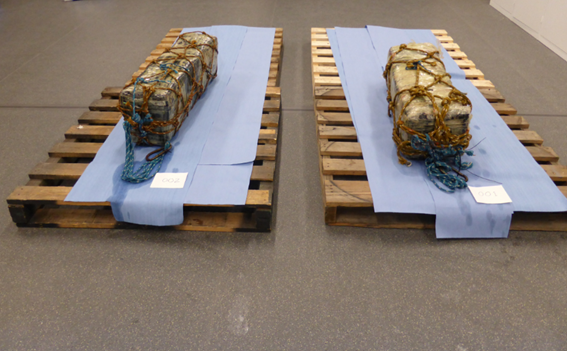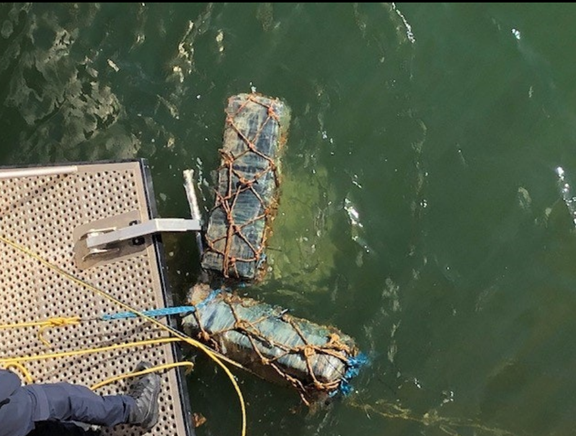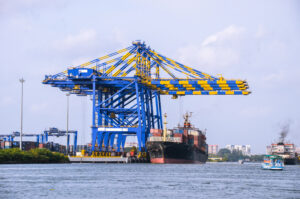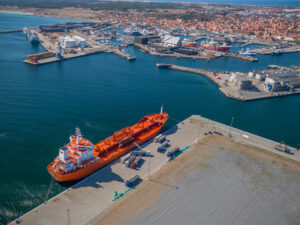
More than 200 kilograms of cocaine hidden in the hull of a cargo ship has been seized in Melbourne.
The cocaine — worth about $80 million — was found after Australian Border Force officers used an underwater remotely operated vehicle to search the vessel when it was docked in the Port of Melbourne last month, after it had travelled from Argentina via New Zealand.
The officers using the ROV identified a suspicious hull attachment in the ship’s sea chest, an area of the vessel that contains pipes used to pump sea water into and out of the ballast tanks.
Specialist divers from Victoria Police Search and Rescue Squad retrieved packages of cocaine from inside the sea chest which were then seized by the AFP.
AFP Commander Richard Chin said attachments underneath the waterline of cargo ships have been regularly noticed by law enforcement over the past two decades, and retrieval of containers such as this can result in death or serious injury to drug smugglers.
“We have prevented 200kgs of cocaine from reaching our streets and in doing so, we have prevented approximately one million street deals and the significant harm to our society that flows as a result.
“The focus of our ongoing investigation remains on identifying and locating the transnational serious organised crime groups responsible for this attempted import, and the people working for them in Australia to receive and distribute these drugs,” commander Chin said.
The ship and crew were permitted to continue its journey after it was searched. It travelled from Victoria across to Western Australia, and then back to South Australia.
AFP says crime groups import drugs on board commercial vessels destined for Australia
Australian Border Force Commander Clinton Sims said Australia was being targeted by organised crime groups moving illegal drugs through the border using parasitic hull attachments on commercial ships.
“Despite international law enforcement agency operations, organised crime groups continue to import illegal drugs on board commercial vessels destined for Australia,” he said.
“Our border is one of our most critical national assets and criminals should know that our efforts will continue to detect, disrupt and dismantle transnational organised crime groups who seek to test the integrity of Australia’s border.”
He highlighted the fact that ABF is utilising submersible ROVs to enhance its ability to conduct mass screening of shipping vessel hulls, and void spaces to detect below-the-waterline concealments of illegal drugs.



